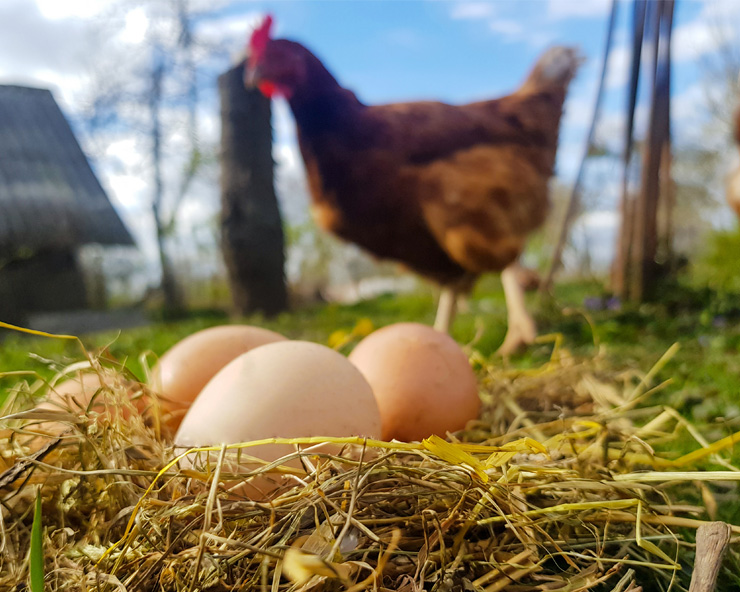Both large and small farms raise chickens, turkeys, ducks, and other birds for eggs. It is a great way for many to get children involved by giving them a job on your farm. Whether you enjoy eating farm-fresh eggs or selling them for additional income, proper handling techniques can help prevent foodborne illness. Often, it is up to individual farm decisions and state regulations regarding whether or not to wash your eggs.
Should I clean my eggs?
Eggs that are not thoroughly cleaned can cause human illness. Salmonella, a disease associated with poultry, can also be passed through contaminated shells. Dirty shells contaminate clean cooking areas, kitchen utensils, food, or hands. Eggs have small pores which harmful bacteria can enter. Even shells that appear clean can carry germs. Even so, eggs do not need to be washed. If not washed, they can keep without spoiling for weeks without refrigeration.
Whether or not to wash your eggs comes down to personal beliefs or state regulations. In some states, you must wash your eggs before you sell them. If eggs are washed, they must be refrigerated. Check out your state regulations about farm selling before choosing to wash or not wash your eggs.
How can I keep my eggs clean without washing?
By preventing the buildup of feces and other debris in your facilities, you can prevent some contamination of your eggs. Whether your birds are housed in coops, cages, runs, or free-range, it is important to keep their housing clean. If you are using closed facilities, changing bedding/litter can often keep feces and debris, like feathers, off your eggs. Frequently gathering eggs can lessen the time eggs stay in contact with harmful materials.
How do I wash and sanitize my eggs?
If there are small amounts of debris or feces, wipe eggs with a towel or sandpaper. Do not scrub as you may damage the shell. If the eggs are dirty, you can wash them. Using 90-120°F, wash eggs and remove debris. Avoid letting eggs soak. Instead, wash each individually. If using soap, use unscented soap to wash your eggs. Warm water allows the egg to expand and push bacteria out, but cold water pulls the bacteria in.
Sanitizing your eggs lessens the microbial load on the shell. Using a chlorine-based sanitizer between 50-100ppm protects the cuticle of the egg while sanitizing. One ounce of bleach in 2 gallons of water is equal to 100ppm. For organic producers, the final rinse must not exceed a chlorine level of 4ppm. After sanitizing, let dry and store promptly in a refrigerator set between 35-40°F. Egg wash ingredients that are acceptable for organic producers include:
- Sodium hypochlorite
- Potassium or Sodium hydroxide
- Hydrogen peroxide
- Sodium carbonate
- Peracetic acid
How should I care for my eggs if I choose not to wash them?
If you choose not to wash your eggs, gently brush debris and feces from the eggs using a cloth. Then safely store them in a cool place in your house. The eggs should stay fresh and safe for up to several weeks. Before using or eating, wash with warm water to remove any dirt.
What are ways I can protect myself from bacteria?
After cleaning or disinfecting eggs, make sure to sanitize all surfaces. After handling your eggs, make sure to thoroughly wash your hands. Safe cooking techniques prevent bacteria, such as Salmonella, from persisting in your eggs. Make sure to cook eggs until 160°F or until firm.
More Resources:
CFSPH-Cleaning and Disinfection on the Farm: Farm Fresh Eggs
CSU Extension-Home-Produced Chicken Eggs
UNL Extension-Egg Cleaning Procedures for the Backyard Flock
USDA-Guidelines for Organic Certification of Poultry
PennState Extension-What Do I Do With All These Eggs?
NPR-Why the U.S. Chills Its Eggs And Most Of The World Doesn’t
Why Does the U.S. Refrigerate Eggs When the Much of the World Doesn’t?


Great information! Thank you for the post.